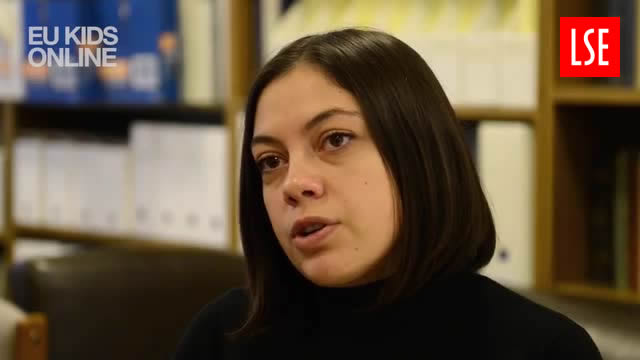In brief
Bulgaria was not involved in EU Kids Online 2020.
The EU Kids Online research is the only comprehensive source of information for the online experiences of children and youth in Bulgaria. The results from the 2010 EU Kids Online survey, conducted in Bulgaria have shown that Bulgarian children have a higher than European average uptake of online activities. In 2016, next survey in the framework of Global Kids Online was conducted in Bulgaria, and the findings demonstrated a clear trend of even higher uptake of online activities and from an earlier age. Even though the technical skills of Bulgarian children have significantly improved since 2010, their critical evaluation, communication, and collaboration skills are suffering, likely due to the slow-to-adapt education system and still insufficient parental mediation and support.
 Bulgaria - EU Kids Online
Bulgaria - EU Kids Online
- The research findings have informed the development of the communication strategy of the Bulgarian Safer Internet Centre for 2017 and 2018, and as a result a number of awareness-rising resources for children, parents, teachers, social workers and representatives of LEA. A national Coalition for Media Literacy in Primary Schools with 15 NGO members has been formed as a result.
- The Centre started work with teachers, academics and officials from the Ministry of Education and Science for the development of a digital and media literacy teacher’s guide for primary school. Based on the work of the expert group, a concept for a digital and media education strategy has been developed and is currently awaiting review by the minister.
- EU Kids Online recommendations have been discussed in a number of consultations and working group meetings initiated by state bodies in order to inform public practice and policy such as the National strategy for improving literacy, and the National programme for prevention of violence against children.
- The study findings were presented in 3 analytical reports which provoked large interest from the media resulting in over 100 press publications and interviews. Various institutions and organisations also disseminated the reports and they were presented in a dozen of national and international conferences and round tables.
Kanchev, P., Hajdinjak, M., Georgiev, E. & Apostolov, G. (2017). Are Digital Natives Digitally Literate? Insights from a national representative survey. Bulgarian Safer Internet Centre.
Hajdinjak, M., Kanchev, P., Georgiev, E. & Apostolov, G. (2017). Online Experiences of Children in Bulgaria: Risks and Safety.
Georgiev, E., Hajdinjak, M., Kanchev, P. & Apostolov, G. (2017). Parental Support for Development of Children’s Digital Skills.
Georgi Apostolov is a journalist by profession who joined the non-governmental Applied Research and Communications Fund in 2000. Since 2006, he has been coordinating the Bulgarian Safer Internet Centre – part of the European Insafe network and of the International Association of Internet Hotlines INHOPE. A major part of the activities of the Centre is research and evidence-based development of various training materials, methodologies and guidebooks.
Petar Kanchev is an expert working for the Safer Internet programme at the Applied Research and Communications (ARC) Fund in Bulgaria where he is responsible for the scientific and applied research related to children’s online behaviour, as well as for running critical thinking and media and digital literacy training for children and young people. His expertise also includes developing, testing, publishing, and applying innovative methods related to the integration of digital and media literacy into the Bulgarian national school curriculum. Petar Kanchev has an MSc degree in Cognitive Science from New Bulgarian University (Sofia, Bulgaria).
Emanuil Georgiev is an expert working for the Safer Internet programme at the Applied Research and Communications (ARC) Fund in Bulgaria where he is responsible for the scientific and applied research related to children’s online behaviour, for supporting of a Youth Panel of the Safer Internet Centre, and running media and digital literacy training for children and young people. Emanuil Georgiev has a PhD degree in Cultural Studies and an MA degree in Philosophy from Sofia University (Sofia, Bulgaria).
Marko Hajdinjak is an expert at the Applied Research and Communications (ARC) Fund in Bulgaria and has 16 years of experience working on international research projects. Some of the projects he has participated in include Empowering Children in the Digital Age through Early Digital Literacy Development; Children, Teachers and Parents against Hate Speech and Discrimination; CITISPYCE – Combating Inequalities through Innovative Social Practices of, and for, Young People in Cities Across Europe; ACCEPT PLURALISM – Tolerance, Pluralism and Social Cohesion: Responding to the Challenges of the 21st Century in Europe. Marko Hajdinjak has a Master of Arts degree in Nationalism Studies from the Central European University.
Petar Kanchev
Applied Research and Communications Fund
1113, Sofia
5, Alexander Zhendov St.
tel.: +359 (2) 973 3000,
fax: +359 (2) 973 3588
e-mail: petar.kanchev@online.bg